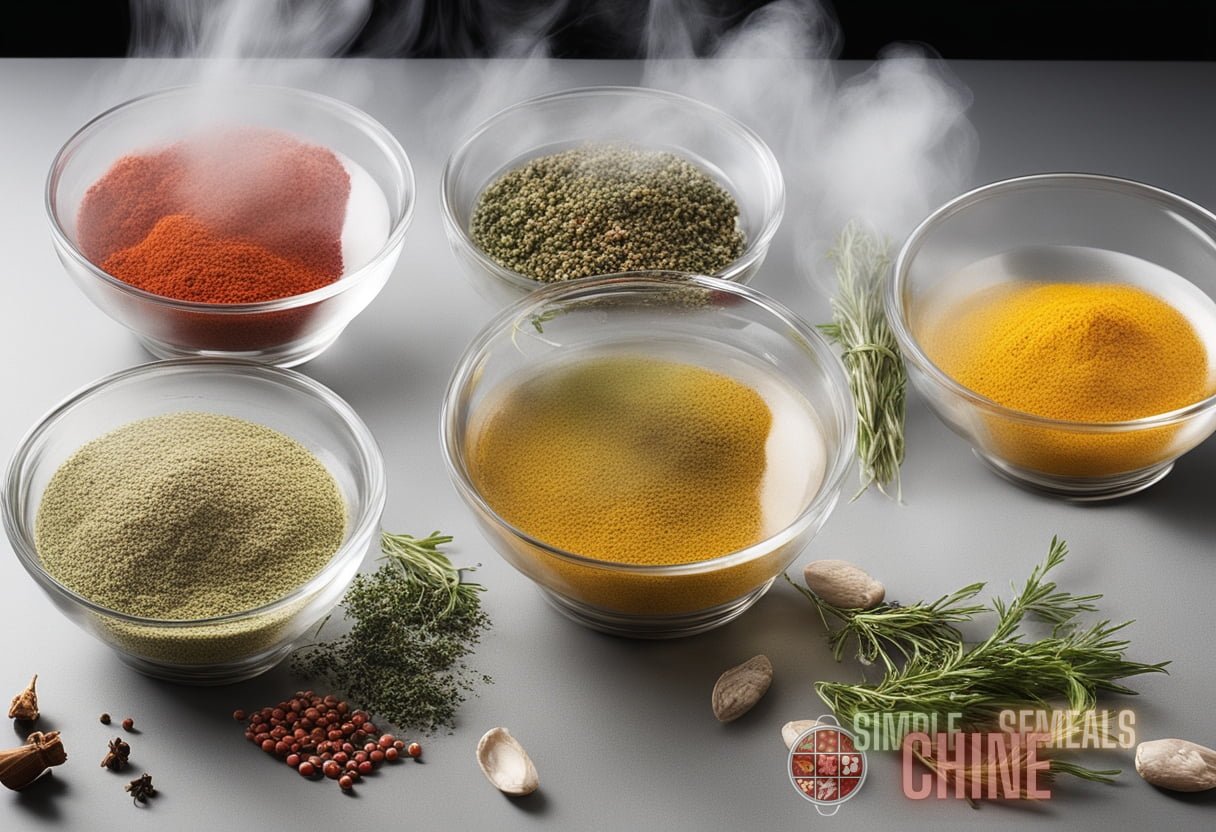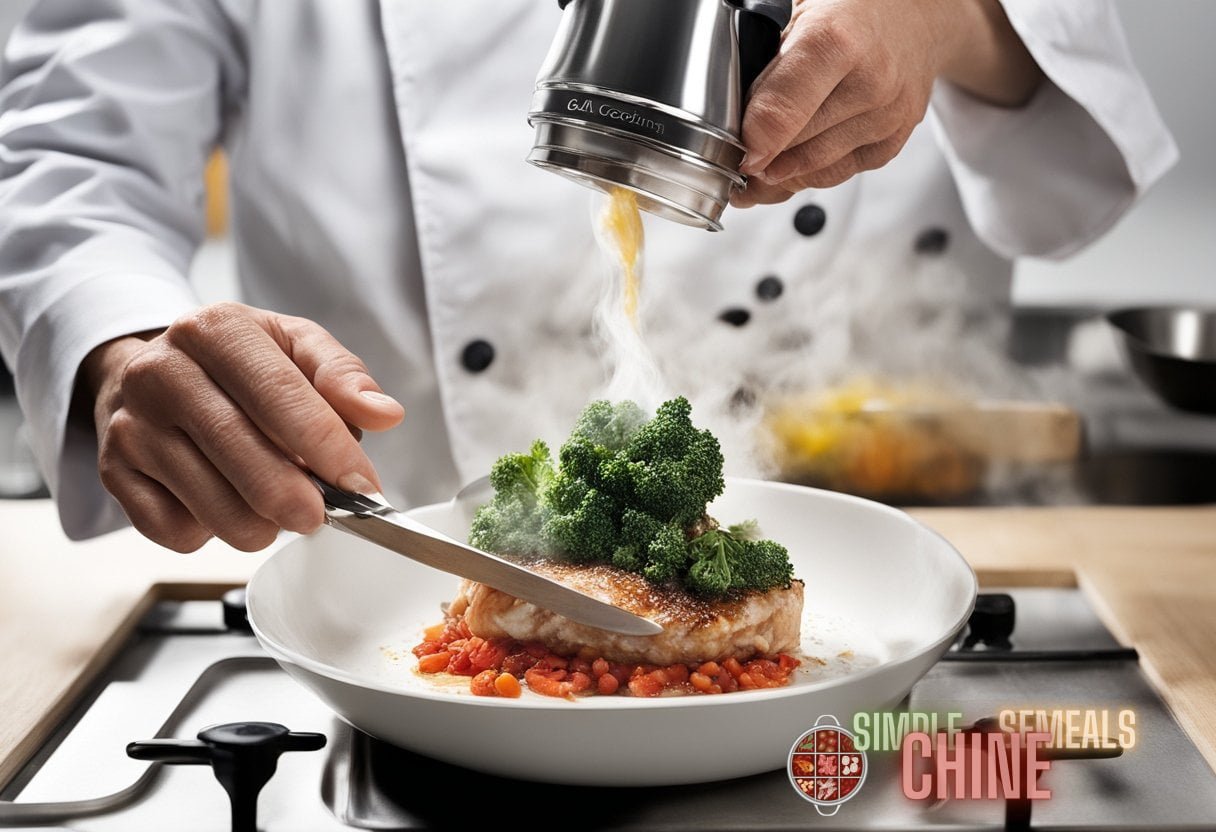The Symphony of Steam: Exploring the Intersection of Science and Flavor in Modern Cuisine
From ancient kitchens to contemporary culinary labs, steaming has been a cornerstone of cooking techniques, preserving flavors, nutrients, and textures in an unparalleled manner. In recent times, the spotlight has turned towards understanding the underlying science that drives this quintessential method and how it melds with modern culinary arts to create a symphony of flavors.
The Science Behind Steaming
What is Steaming?
Steaming is a method of cooking where food is placed over boiling water, allowing the steam to transfer heat and cook the food. This technique is renowned for its ability to retain nutrients and natural flavors compared to other cooking methods like boiling or frying.
The Physics of Steam
The process of steaming involves the transformation of water from liquid to vapor at 100°C (212°F) at sea level. This phase change absorbs a substantial amount of energy, a phenomenon known as latent heat. When steam comes into contact with food, the heat is transferred, cooking the food gently yet thoroughly.
The Role of Pressure in Steaming
Pressure plays a decisive role in the steaming process. Pressure cooker steaming can raise the boiling point of water above 100°C, significantly reducing cooking times. This method is not just about expedience but also retains the moisture, tenderness, and essential nutrients of the food.
Nutrition: The Steamy Advantage
Steaming is lauded for its ability to retain vitamins and minerals. Unlike boiling, where nutrients can leach into the cooking water, steaming ensures these essential components stay within the food. Additionally, steaming helps retain antioxidative properties, making it a healthier option for preparing meals.
Modern Cuisine: Fusion of Tradition and Technology
The Traditional Roots of Steaming
From the humble bamboo steamer baskets of China to the sophisticated steam ovens of Europe, steaming has evolved yet retained its core benefits. Different cultures have unique steaming techniques that infuse flavors while preserving the food’s authenticity.
Technological Advancements in Steaming
Modern cuisine has embraced steaming with open arms, thanks to advancements in kitchen technology.Combination steam ovens and sophisticated steam cookers enable chefs to control temperature and humidity with precision, ensuring consistent results.
The Culinary Creativity with Steaming
With tools like combination steam ovens, chefs can push boundaries, creating dishes that tantalize taste buds while being nutritionally robust. These advancements not only offer versatility but inspire culinary artists to experiment, leading to a fusion of tradition, science, and creativity.
The Intersection of Science and Flavor in Steaming
Molecular Gastronomy and Steaming
Molecular gastronomy explores the physical and chemical transformations of ingredients during cooking. Steaming is a pivotal technique within this scientific culinary realm. Innovations such as molecular steaming use the precise control of temperature and pressure to achieve textures and flavors that were previously unattainable.
Flavor Infusion through Steaming

Flavor infusion in steaming can be achieved by adding herbs, spices, and aromatic liquids to the steaming water. The vapor carries these infused flavors directly into the food, creating a depth of taste. Additionally, the preservation of moisture ensures the dish remains succulent and flavorful.
Textural Perfection
Steaming is unique in achieving optimal textures in foods. From the fluffy softness of steamed buns to the firm yet tender texture of steamed fish, the gentle and even heat distribution of steam allows for the creation of delicate textures that other cooking techniques might compromise.
Health Benefits of Steaming
Reducing Fats and Oils
One of the primary health benefits of steaming is the minimal use of fats and oils. Steaming allows the natural flavors and textures of the ingredients to shine through without the need for excessive fats, leading to heart-healthier meals.
Retaining Nutrients
As previously mentioned, steaming retains essential vitamins and minerals. Vitamins such as B and C, which are water-soluble and sensitive to heat, are better preserved, ensuring the nutritional integrity of the food.
Digestibility
Steamed food is generally easier to digest because the gentle cooking process does not denature proteins or toughen fibers, making the nutrients more readily available for absorption by the body.
Recipes and Techniques: A Culinary Journey
Classic Dishes
- Steamed Fish: A quintessential dish often cooked with ginger and scallions, utilizing the natural moisture of the fish.
- Dim Sum: Steaming is integral to making these bite-sized treats, ensuring they remain soft and flavorful.
- Sticky Rice: Steamed sticky rice retains its unique texture and flavor, commonly seen in various Asian cuisines.
Innovative Recipes
Contemporary chefs are pushing the limits of steaming by incorporating it into modern recipes, including:
- Herb-infused Steamed Vegetables: Infusing vegetables with fresh herbs like rosemary and thyme during steaming.
- Steamed Desserts: Steamed puddings and cakes, which are moist and fluffy.
- Steamed Proteins: Innovatively steaming meats and seafood with marinades and broths for enhanced flavors.
Conclusion: The Symphony of Steam
Steaming, an age-old technique, has gracefully evolved into a pivotal method in modern kitchens. It is where science and flavor converge, producing culinary masterpieces that are both nutritious and flavorful. The fusion of tradition, science, and innovation has not only preserved the essence of steaming but elevated it, offering a healthier and versatile approach to cooking.
Whether you are a culinary enthusiast or a seasoned chef, embracing the symphony of steam in your cooking repertoire opens up a world of possibilities where flavor, texture, and nutrition harmonize seamlessly.
Read more about the secrets of steaming on our dedicated article and discover the scientific intricacies of molecular steaming here.



